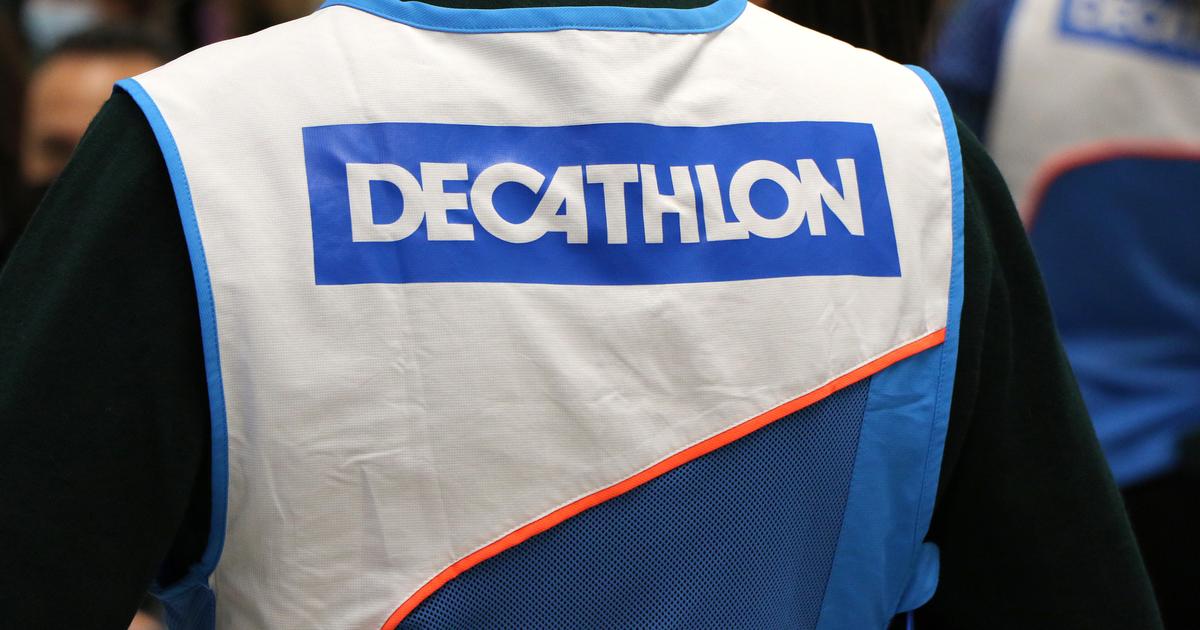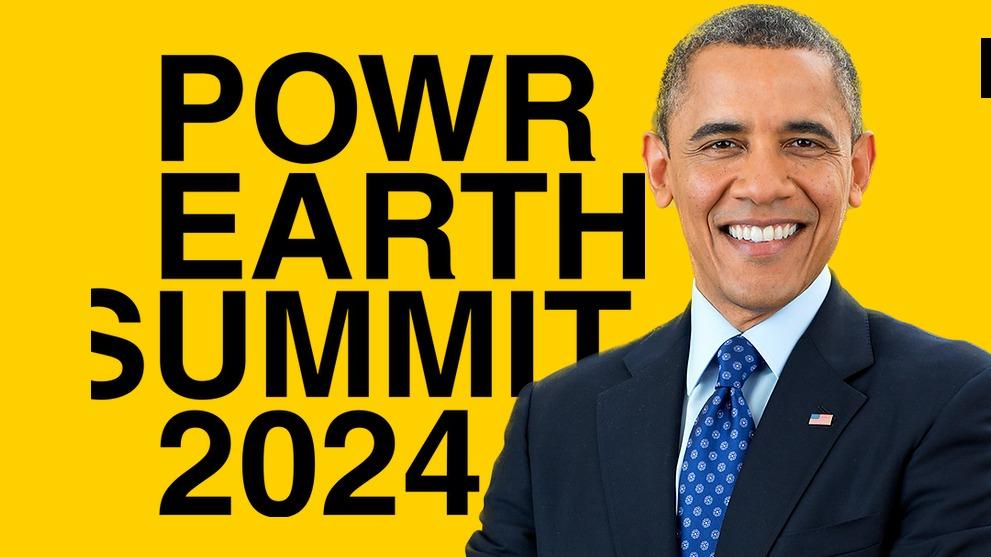Religious leaders unite on climate change 0:40
Editor's Note:
Keith Magee is a theologian, political adviser, and scholar of social justice. He is Chairman and Professor of the Social Justice Clinic at the University of Newcastle, UK; Senior Fellow for Culture and Justice at University College London; and a member of politics at the Center for American Politics at that university. While visiting fellow at Boston University, he founded the Institute for Social Justice in 2014. He was recently appointed to the United Kingdom and the United States Fulbright Commission. He is the author of "Prophetic Justice: Essays and Reflections on Race, Religion and Politics". The opinions expressed in this comment are yours. See more opinions on CNNEE.
(CNN) -
In a few days, world leaders will meet at the COP26 climate change conference in Glasgow, Scotland.
There they will have a unique and precious opportunity not only to combat global warming, but also to recognize, and commit to combat, the interconnected crises of climate change and social and racial injustice.
Will they accept it?
Science tells us that to avoid irreversible climate change, which will have a catastrophic effect on life on Earth, we must limit temperature increases to 1.5 or 2 degrees maximum.
That means achieving the net zero emission reduction target by 2050 at the latest. Time is fast running out.
World leaders know what is at stake.
Most of the wealthiest nations and all of the G20 member states signed the Paris Agreement in 2015. And yet, according to Climate Action Tracker's analysis, few of the Paris signatories are meeting their promised targets.
So what stops them?
OPINION |
Green economic recovery, a possible aid against climate change
2500, the apocalyptic year caused by climate change 0:45
Political difficulties
Some will be hampered by skeptical voters, financial constraints, and challenges related to Covid-19. US President Joe Biden, while painfully aware of the risk climate change poses to his country's economy, is struggling to enact vital green policies due to political polarization and tensions within his own Democratic Party.
But I think the key reason for much of the current inaction, and the biggest threat to progress at COP26, is a lack of empathy. It is the inability of some of the most influential leaders and a large part of the public whose votes they depend on, including in North America, Europe and Australia, to see most of the victims of climate change as totally real people, deserving of protection. And that's partly due to the skin color of those victims.
The meeting rooms of COP26 will be haunted by the (literally) toxic legacy of the empire-building days of many of the world's richest countries, when the prosperous and industrialized nations of the Northern Hemisphere, whose populations were mostly white. They looted the resources of the poorest, pre-industrial nations of the southern hemisphere, whose populations were mostly black or brown.
The colonialists and slave traders devised an ingenious way to justify this exploitation by avoiding any overwhelming guilt: they invented the concept of race to justify declaring that whites are superior and people of color inferior, not entirely human.
Persistent belief and institutional reflections of this pernicious idea continue to be the cause of many injustices around the world, and climate injustice is no exception.
OPINION |
Green economic recovery, a possible aid against climate change
Meet the tallest bee hives in the world 1:18
Because if the Earth continues to warm, it is the black and brown inhabitants of the poorest and most climate-vulnerable regions of the world who will suffer more and sooner. People living in places like the Pacific Low Islands, which are now at risk of being wiped out by rising sea levels, and much of sub-Saharan Africa, where extreme heat, droughts and floods can lead to famines, they will pay the price.
Their suffering will be closely mirrored by that of the most disadvantaged populations in the wealthiest nations, who cannot afford to protect themselves from extreme weather-related events and often cannot recover from such events once they have hit. This is already happening in the southern United States, where in recent years major hurricanes have left already marginalized, mostly black communities traumatized and even poorer.
The G20 countries are, according to a document from the World Resources Institute and Climate Analytics, responsible for around 75% of global emissions.
Consciously or not, some of those privileged few are in danger of using the mechanism of dehumanization as a psychological buffer between themselves and those who pollute the least and are most threatened by climate change.
If you see the climate crisis as something that primarily affects people who, in some indefinable way, are not like you, or worse, are less human than you, then it is unlikely that you feel the need to take urgent and costly measures to save them. .
Scientists analyze more than 100,000 studies and discover that the world has a huge blind spot on climate change
Climate change alters animal bodies, study says 0:47
Empathy, another tool to challenge climate change
The only antidote to this "otherness" and to injustice of all kinds is a more radical empathy.
If we want to be successful in fighting climate change, we must develop deep empathy for all of our fellow citizens around the world, and we must demand that our leaders demonstrate their ability to do the same.
When we hear Pacific Islanders explain how it feels to face extinction, we must be able to feel their dread.
When we see climate refugees forced to leave Africa's Sahel region, where unpredictable rains mean they can no longer depend on their own crops to feed their children, we have to really experience their anxiety, their despair, their hope.
Empathy takes work. It is not an easy task to really understand that a person who does not look like you, talks like you, or prays like you is, in fact, your brother or sister. It can be difficult, or even feel antagonistic, to be asked to see the world through the eyes of a stranger, but doing so can lead us to recognize the beauty of our common humanity in ways that can transform the world.
The best way to open our minds and hearts and learn empathy is to truly listen to others.
That is perhaps the best opportunity that COP26 provides.
We must give the people who have the most to lose from our climate inaction - residents of the global south, members of poor and vulnerable communities, and young people - an unfettered platform to express their fear and frustration and share the solutions they know.
are required.
When they do, the rest of the world must pay close attention, at COP26 and beyond, and then act in unison to make social and racial justice a centerpiece of climate solutions, all pursued with renewed commitment.
If we can all take a leap of faith and begin to perceive that every current and future inhabitant of this fragile planet is as amazingly human as we are, then we might have a chance to avoid more climate disasters.
We could also, finally, build a new world in which racial and social injustice are a thing of the past.
We will all win if we meet that goal.
It seems to me that COP26 is as good a place as any to start.
Climate changeCOP26



/cloudfront-eu-central-1.images.arcpublishing.com/prisa/TMZ4PQHOJZ4TRSRZ2OO65Q4ANI.jpg)








/cloudfront-eu-central-1.images.arcpublishing.com/prisa/KMEYMJKESBAZBE4MRBAM4TGHIQ.jpg)


